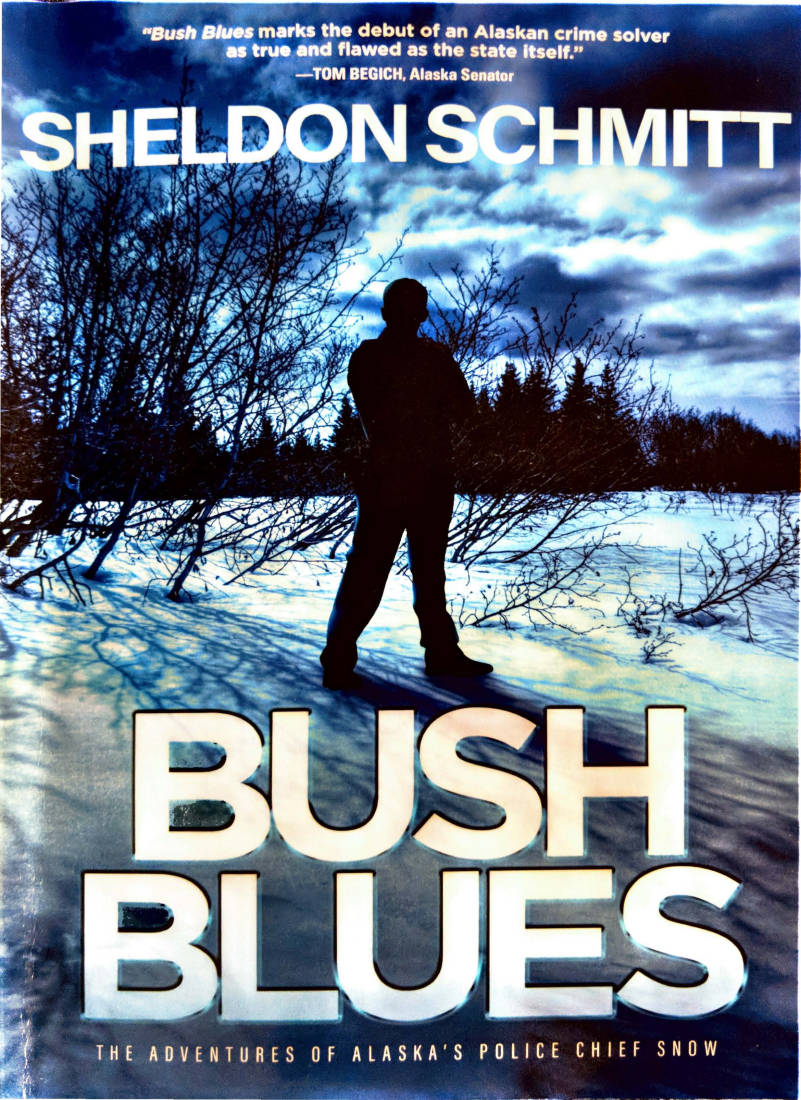“Bush Blues” is an introduction to the Alaska bush’s own Mike Hammer.
Like the famously hard-boiled Mickey Spillane detective, Chief Snow, who is at the center of retired Sitka Police Chief Sheldon Schmitt’s novel, is a quick-on-his-feet lawman who has no qualms about bending rules to make sure justice is meted out.
Usually, that means leniency with drunken small-time crimes in Togiak, Alaska, rather than extrajudicial punishment.
If you have a soft spot for pulpy crime stories, “Bush Blues” offers plenty of pleasures.
A prologue that starts in the middle of an in-progress fight for life sets the stakes for the ensuing pages, it’s clear that there’s a man who is mostly good, a man who is all bad, and they’re going to find themselves in violent conflict.
“The one advantage that bad guys had over other normal people was the willingness to kill without hesitation,” we’re told almost immediately.
However, it takes nearly half of the book’s 176 pages for the start of the mechanations that will bring that conflict to a head.
Still, the early meandering of the book is pleasant and eventful — there’s a plane crash, bear attack and the introduction of a simmering romantic plot.
Nearly a dozen colorful characters are also introduced, including multiple pilots, Alaska Natives, state troopers and a folklore figure who may or may not be real.
The characters have a tendency to spout John Wayne aphorisms, like, “We’re burning daylight,” but also are written as the exact sort of people who would be more than passingly familiar with The Duke’s movies.
The early going also allows the influence of Schmitt’s real-life, multi-decade career in law enforcement in Alaska and fondness for its people shine through.
“How can someone live out here so long and look down his nose at everyone?” thinks Chief Snow about a quarter of the way into the book.
When Chief Snow is glad he sprang for steel-toed boots because they’re well suited to kicking on doors when knocking is muffled by gloved hands it scans as a real-life observation.
Those nuggets of wisdom pop up frequently and add a level of interest to proceedings.
“Bush Blues” is not subtle, and some of the matter of fact ruminations on the realities of rape and sexual assault in western Alaska might be tough for some readers.
But at least the second half of the book his a briskly paced potboiler, and there is plenty of local color throughout to give it ample charm.
The blunt-force prose and sub-200-page length also mean it’s an enjoyable breeze to read.
• Contact arts and culture reporter Ben Hohenstatt at (907)523-2243 or bhohenstatt@juneauempire.com.

